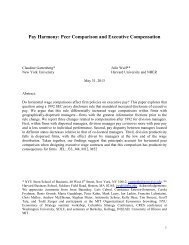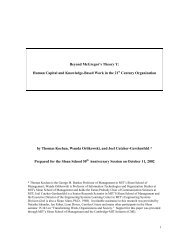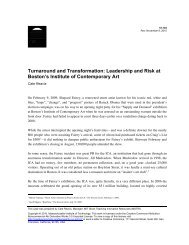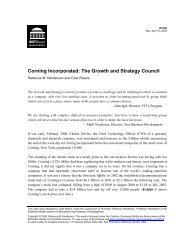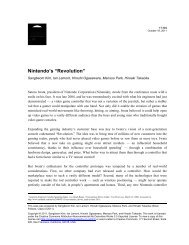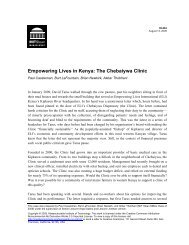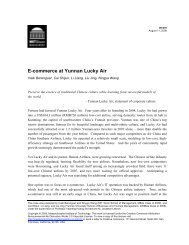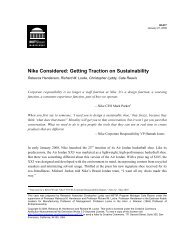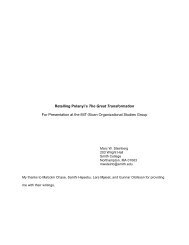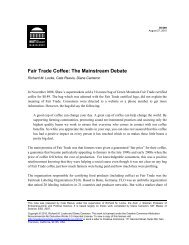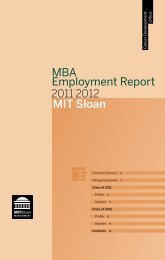Understanding earnings quality - MIT Sloan School of Management
Understanding earnings quality - MIT Sloan School of Management
Understanding earnings quality - MIT Sloan School of Management
Create successful ePaper yourself
Turn your PDF publications into a flip-book with our unique Google optimized e-Paper software.
3.1.4 Benchmarking<br />
This section covers studies that use small positive differences between reported <strong>earnings</strong> and<br />
any benchmark as a measure <strong>of</strong> <strong>earnings</strong> <strong>quality</strong>. A significant component <strong>of</strong> this literature is related<br />
to the “kink” in the distribution <strong>of</strong> reported <strong>earnings</strong> around zero: a statistically small number <strong>of</strong><br />
firms with small losses and a statistically large number <strong>of</strong> firms with small pr<strong>of</strong>its (Hayn, 1995;<br />
Burgstahler and Dichev, 1997). A common but controversial interpretation <strong>of</strong> this pattern is that<br />
firms with unmanaged <strong>earnings</strong> just less than the heuristic target <strong>of</strong> zero intentionally manage<br />
<strong>earnings</strong> just enough to report a small pr<strong>of</strong>it. Thus, small pr<strong>of</strong>its (or avoiding small losses) are a de<br />
facto indication <strong>of</strong> <strong>earnings</strong> management. Likewise, small <strong>earnings</strong> increases are a proxy for<br />
<strong>earnings</strong> management based on the finding in Burgstahler and Dichev (1997) <strong>of</strong> a statistically<br />
unusual number <strong>of</strong> firms with small decreases in <strong>earnings</strong>, and meeting or beating an analyst<br />
forecast is a proxy for <strong>earnings</strong> management based on the finding in Dechow, Richardson, and Tuna<br />
(2001) <strong>of</strong> a “kink” in <strong>earnings</strong> around consensus analyst forecasts.<br />
The consequences studies frequently use small positive surprises (or avoidance <strong>of</strong> negative<br />
surprises) as a proxy for managed <strong>earnings</strong>, and the authors make predictions about the<br />
consequences <strong>of</strong> the assumed diminished <strong>quality</strong>. In the determinants studies, the most common<br />
research question is whether the assumption that is made in the consequences studies – that small<br />
positive surprises are more likely to represent managed <strong>earnings</strong> – is justified.<br />
Determinants <strong>of</strong> small positive pr<strong>of</strong>its: Several studies suggest that small pr<strong>of</strong>its are not<br />
evidence <strong>of</strong> <strong>earnings</strong> management. Dechow, Richardson, and Tuna (2003), in a large-sample study,<br />
find no relation between realizations <strong>of</strong> small pr<strong>of</strong>its and increases in discretionary accruals. Beaver,<br />
McNichols, and Nelson (2007) suggest that asymmetric taxes, rather than opportunistic choices, can<br />
51



